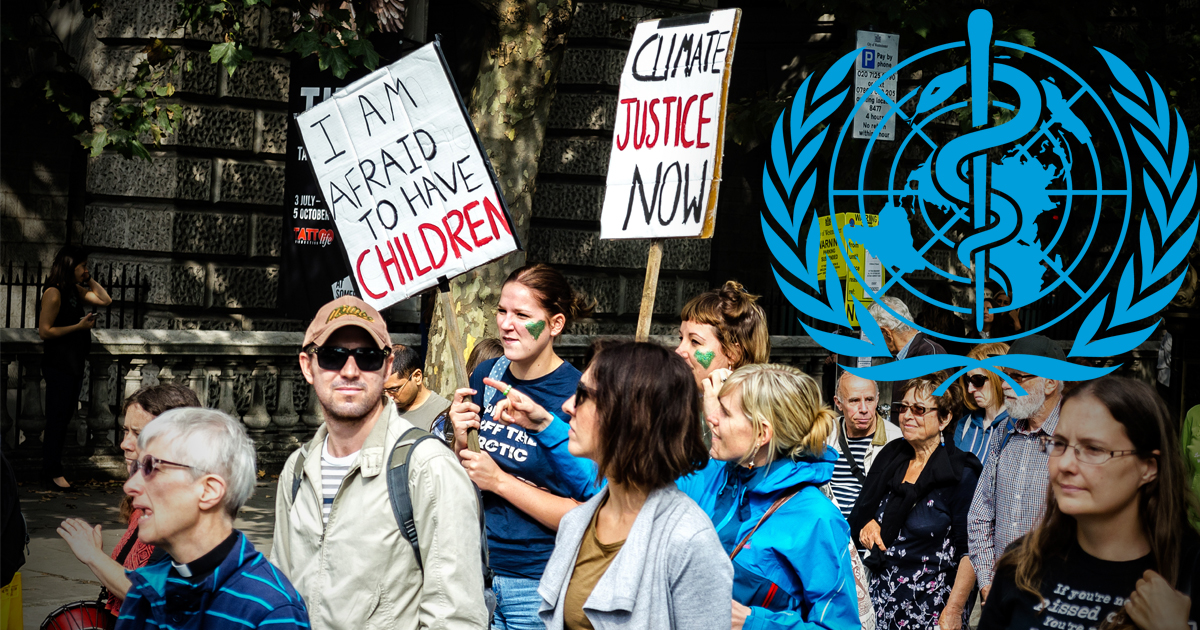The head of the Climate Change Unit at the WHO has warned that warmer weather can lead to negative mental health effects.
Earlier this week, the UK experienced some of the hottest weather ever, as a heatwave hit the island nation. Temperatures reached well over 100 degrees Fahrenheit on Monday and Tuesday, breaking the national record. The British Met Office even issued their first ever red warning for temperature across the country.
Speaking to Kay Burley on Sky News, Switzerland-based Diarmid Campbell-Lendrum, who leads the Climate Change Unit at the international organization, discussed the extreme heatwave, along with the impacts it could have on people.
“Mental health is actually one of the issues that we’re getting very much increased evidence, just within the last couple of years, as we look at the range, the very wide range of impacts that climate change has on our health,” Campell-Lendrum said. “At the individual level, in the short term… it disrupts people’s sleep, it makes them more irritable, it can make them more lethargic.”
How could the extreme heat affect your mental health? 👤🌡️@DiarmidCL, who leads the Climate Change Unit at @WHO, explains on #KayBurley 👇
Follow live weather updates | https://t.co/tZQg6n04ME
📺 Sky 501, Virgin 602, Freeview 233 and YouTube pic.twitter.com/3r9OteVaEA
— Sky News (@SkyNews) July 19, 2022
Immediately after discussing lethargy, he admitted that acting lethargic in a heatwave “is not necessarily a bad thing,” advising that people should “limit their physical activity and that they should stay cool.”
However, the biggest impact on mental health created by climate change that Campbell Lendrum discussed was actually the effect of contemplating “the damage that we’re doing to the planet and the future of [people’s] children.” The WHO expert noted that it was having a particular impact on the mental health of “young people.”
According to a study from September last year by researchers from the University of Bath, almost 60% of people aged 16 to 25 were very or extremely worried about the impacts of climate change, with a similar number saying that they felt betrayed by their governments and older generations for refusing to act on climate change.
Around three-quarters of the 10,000 young people interviewed across 10 countries said that they agreed with the statement “the future is frightening.” 40% of respondents said that they are hesitant to even bring children into a world where climate change was going to end up killing them all.
A survey conducted in March 2020 of 2000 British 8 to 16-year-olds for BBC’s Newsround, the children’s news programme, revealed that 1 in 5 had had a bad dream about climate change, and the majority of them worried about the impact it would have on them in the future.




































